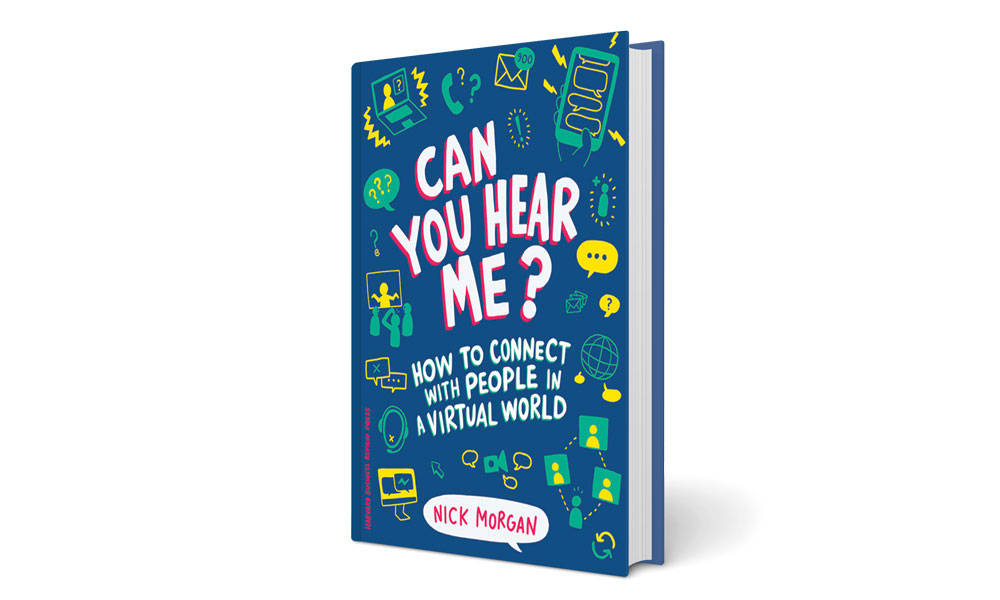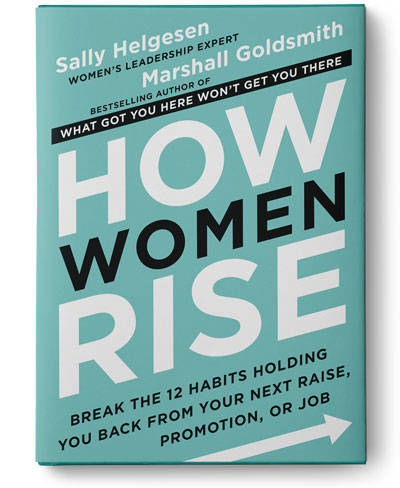
Books: Virtual Connections
In Can You Hear Me? How to Connect With People, CNN commentator Nick Morgan explains how to build better digital relationships.
Can You Hear Me? How to Connect With People
By Nick Morgan; Harvard Business Review Press; 256 pages; $30
Author Nick Morgan is no fan of webinars, calling them “a form of torture” and a “truly awful way to communicate,” since there is little to no real conversation. Emails, video chats, and texts rank little better, in his opinion.
But as a CNN commentator and executive coach, he figures that if virtual communication is here to stay, then we’d all best be taught, reminded, or scolded to use them appropriately.
Chief among Morgan’s five concerns in Can You Hear Me? How to Connect With People in a Virtual World are that relationships have become more fragile than ever, thanks to the weak virtual foundation underlying so many. Sucked dry of the emotions and physical senses that guide our subconscious during in-person interactions, digital relationships need face-to-face reinforcement at least once in the earliest stages of trust-building, he says. Hence, the rise of emoji, seen by Morgan as a tolerable but desperate maneuver to inject the right emotion into virtual communication.
For associations—which pride themselves on enabling meaningful member connections—his lessons are especially urgent. Tackling each digital channel and citing recent behavioral research, Morgan identifies specific strategies that reduce the lack of empathy, control, feedback, and authentic connections in virtual communications.
For example, Morgan strongly encourages professionals to “be intentional” through careful choice of language and digital vehicles, to build rapport through personal storytelling and humor, and to stop meetings regularly to “take the temperature” of participants’ emotions.
A good guide for association staff at all levels, especially those in virtual teams, member services, marketing, and sales.

How Women Rise: Breaking the 12 Habits Holding You Back from Your Next Raise, Promotion, or Job
By Sally Helgesen and Marshall Goldsmith; Hachette Books; 242 pages; $28
Two of the top leadership researchers in America publish a joint coaching session after identifying a dozen common self-sabotaging behaviors that stall career advancement for women.
Among the behaviors most likely hurting many female association professionals: expecting others to spontaneously notice and reward your contributions, building rather than leveraging relationships, and putting your job before your career. Some other bad habits—desire to please, perfectionism, talking or doing too much, and not claiming achievements—remain oldies and not-so-goodies.
Using compelling client cases, including some from the nonprofit world, Helgesen and Goldsmith offer step-by-step strategies to dismantle barrier-building behaviors.
A wonderful gift to yourself and the smart, ambitious women working hard around you.

Gigged: The End of the Job and the Future of Work
By Sarah Kessler; St. Martin’s Press; 289 pages; $25.99
Freelancers now make up one-third of America’s “new economy,” and that percentage could grow exponentially alongside artificial intelligence, automation, and other “future of work” innovations, according to journalist Sarah Kessler.
For organizations, freelancers enable CEOs to reshape and supplement staff, outsourcing drudge work or bringing in short-term executive skills. Innovative remote-work technologies and falling costs for these systems have accelerated the growth.
Freelancers, meanwhile, are straying from traditional career paths in favor of controlling their schedules and projects, as well as honing skills. Despite unsteady income, many freelancers, such as Uber drivers, find getting “gigged” suits their needs.
But recasting the modern economy is messy work, and tough politics exist around worker classifications, portable benefits, and other issues. Debate continues, and associations should be listening.
Good companion reading to the ASAE Foundation’s ForesightWorks action brief, “New Forms of Work.”






Comments